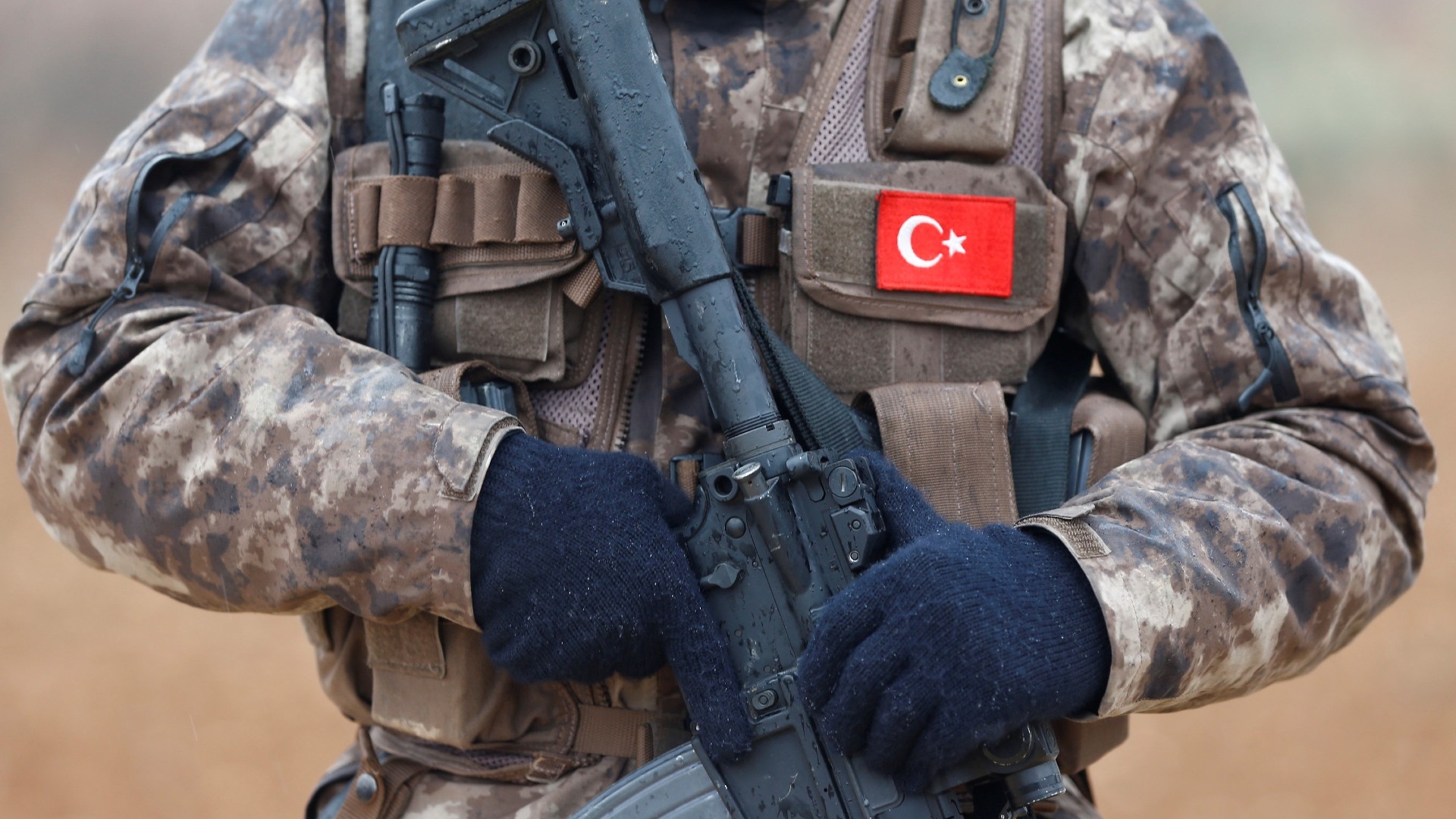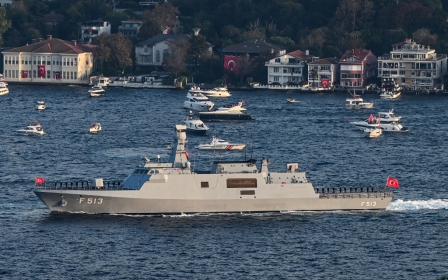Why Turkey won't join the UAE's Gaza force - for now

The United Arab Emirates (UAE) officially proposed the deployment of an international force to Gaza last week to maintain law and order under the auspices of the Palestinian Authority (PA) following a ceasefire in the war-torn enclave.
Lana Nusseibeh, an assistant minister for political affairs in the UAE, wrote in an opinion piece for the Financial Times that "a temporary international mission" could address the humanitarian crisis and lay the groundwork for governance, thereby "paving the way to reuniting Gaza and the occupied West Bank". She indicated that the UAE is willing to deploy troops in Gaza.
This proposal emerged prior to a reported meeting in Abu Dhabi last Thursday between officials from the US, Israel and the UAE, discussing the future of Gaza post-war and the deployment of such troops.
Abdulkhaleq Abdulla, a political scientist close to the UAE's ruling class, noted that Abu Dhabi has several conditions for participating in such an initiative.
These include an official invitation from the PA, substantial reforms within the PA and the appointment of an independent prime minister. Abdulla also emphasised that the Emiratis want assurances that the PA would assume control over Gaza and want Israel to commit to a two-state solution.
New MEE newsletter: Jerusalem Dispatch
Sign up to get the latest insights and analysis on Israel-Palestine, alongside Turkey Unpacked and other MEE newsletters
However, the UAE would need allies to form such a force.
In an interview with Sky News Arabia on Wednesday, Turkish Foreign Minister Hakan Fidan said that Turkey was ready to contribute to an international force in Gaza, if there is an agreement on a two-state solution.
"If the Palestinians are given a state, we have spoken to other Islamic countries, we have spoken to other countries. (They) are ready to do their part to keep this state and the peace agreement standing, we have no problem with that,” he said.
Turkey has long been considered a potential partner, given that Fidan previously proposed a guarantorship model where international actors would ensure a ceasefire and a peace agreement. Relations between Ankara and Abu Dhabi have strengthened in recent years, with cooperation across various fields.
Two people familiar with Turkish perspectives told Middle East Eye that Ankara currently regards discussions about an international force as premature and distracting.
"Israel has yet to sign a ceasefire deal, although Hamas has already agreed to one," said one source. "This would only divert public attention and buy time for Israeli Prime Minister Benjamin Netanyahu before his visit to Washington."
Another source suggested that Turkey might consider joining such an international force if Israel agrees to a lasting ceasefire, with guarantors ensuring both parties' genuine willingness to negotiate a peace deal leading to a two-state solution.
"Ankara would be open to transparent negotiations on such an international force involving all regional parties and partners once these conditions are met," the second source said. "Turkey would not simply do Israel's or America's bidding or become their police force in this initiative."
“Yes, if the Palestinians are given a state, we have talked to other Islamic countries, we have talked to other countries, including Turkey, other countries are ready to do their part to keep this state and the peace agreement standing, we have no problem with that,” he said.
Significant obstacles
Washington is developing a plan for post-war Gaza security, which would involve a US-backed mission led from Cairo.
Last month, Middle East Eye reported that the Biden administration was considering assigning the United States Central Command (Centcom) the responsibility of coordinating with the Palestinian Authority's security forces.
Centcom had already been given jurisdiction over matters related to Israel in 2021.
'Turkey would not simply do Israel's or America's bidding or become their police force in this initiative'
- Source familiar with Turkish perspectives on Gaza
A senior US defence official told MEE that Bahrain is willing to deploy peacekeepers to Gaza. Bahrain's police and security forces include many Pakistanis and Jordanians of Palestinian descent.
Despite this proposal, the UAE initiative faces significant obstacles, notably the requirement for a comprehensive overhaul of the PA, which reportedly has strained relations with the Emiratis.
In April, Axios reported that a meeting between Emirati Foreign Minister Abdullah bin Zayed Al Nahyan and Hussein al-Sheikh, a senior Palestinian official, turned contentious. The Emirati official accused the Palestinian leadership of corruption, calling them "Ali Baba and the 40 thieves."
According to reports, Netanyahu has expressed to the UAE a desire for Emirati troops to be deployed to finance reconstruction and to reform Gaza's education system, stating that the enclave's population need to be "de-radicalised".
However, Israel's prime minister rejects any official role for the PA in Gaza and is unwilling to resume a political process based on the two-state solution.
Last week, the Israeli parliament voted to reject any Palestinian state.
Middle East Eye delivers independent and unrivalled coverage and analysis of the Middle East, North Africa and beyond. To learn more about republishing this content and the associated fees, please fill out this form. More about MEE can be found here.




